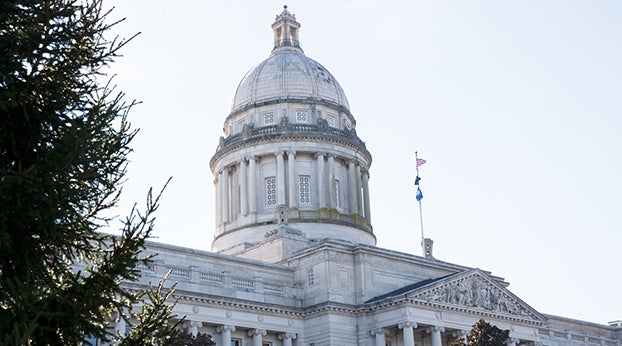Confederate statue doesn’t have to divide Danville
Published 5:43 pm Friday, October 25, 2019
EDITORIAL
The Advocate-Messenger
The plan to move a Confederate statue from the grounds of the Presbyterian Church of Danville has undoubtedly stirred up a lot of emotions for people from many different corners of society.
Many plans to move or even get rid of Confederate statues around the country have been defined by vitriol and a total unwillingness by those on opposite sides to understand where the other side is coming from.
Protesters have torn down statues in some communities where laws prohibited the statues’ removal. Other statues have been been moved almost secretly or under cover of darkness to avoid violent reactions feared from some who want the statues to remain.
In 2017, the Atlanta Journal Constitution reported that a state representative in Georgia essentially threatened a former legislator who was calling for removal of Civil War monuments. State Rep. Jason Spencer told former state Rep. LaDawn Jones that if she continued to criticize his support for the monuments, she wouldn’t be “met with torches but something a lot more definitive.” Spencer also wrote that people in Georgia are “people of action,” and people like Jones “will go missing” because they misunderstand.
Clearly, a lot of people feel very passionate about these statues, monuments and memorials that were originally erected to celebrate people associated with the Confederacy. The passion on both sides has risen to such high levels that a shrinking number of people are capable of seeing their opponents as fellow human beings anymore.
It doesn’t have to be that way, and Danville could serve as an example for the rest of the nation.
There is a noteworthy difference with the statue of Confederate Capt. Robert E. Logan when compared to many other controversial statues around the nation: The statue in Danville stands on private land, not public land.
The church isn’t under any public obligation to do something with the statue, and it likewise isn’t under any public obligation to keep it in place. Government can’t dictate the statue’s future just like it can’t tell you what to do with a tree in your front yard or a workbench in your garage.
We think this is a positive — it removes from the conversation distractions about where we should draw lines on government censorship and overreach, and it allows the conversation to be focused instead on why so many people care in the first place: history.
Something else that bodes well for Danville’s case: The church isn’t destroying the statue out of disgust with its ties to slavery; it has found a suitable location in Bellevue Cemetery that would place the statue close to graves of Confederate soldiers.
This doesn’t eliminate, but it does greatly reduce another distraction: arguing over whether society is trying to erase its own history. We think it’s clear in this case the church is not trying to erase history; instead, it’s trying to place a historical object in an appropriate context. And it’s not being done to poke those who disagree in the eye; it’s being done to avoid poking others in the eye who have good reasons to dislike statues dedicated to the Confederacy.
There are people living here today who are descended from slaves who helped build this region and country. Their ancestors were beaten, denied education and forced to work for nothing so that others could reap the profits of their labor. Regardless of the many reasons you may believe the Civil War was fought, you cannot deny the Confederate states intended to retain slavery permanently as a way of life by seceding.
In joining the Confederacy, the state of Texas declared that non-slave-holding states were attacking and attempting to destroy Texans’ way of life. A primary component of that way of life? “… maintaining and protecting the institution known as negro slavery — the servitude of the African to the white race within her limits — a relation that had existed from the first settlement of (Texas’) wilderness by the white race, and which her people intended should exist in all future time.”
Texas was not unique among the Confederate states in this regard.
There’s no way around the fact that such an argument is vile. It’s not something any church today would want to be associated with. For many people, any connection to the Confederacy is going to make them think of slavery, and they will be turned away from the church as a result. Turning people away is the opposite of what a church hopes to achieve.
But in the Presbyterian church’s decision, we don’t just see a rejection of slavery; we also see acknowledgement that for others, Confederate statues hold significance for other reasons, and that all types of our history should be preserved.
What we have in Danville is an opportunity. A chance for a controversial object to find a new home in an appropriate context. A chance to both preserve our history and acknowledge its flaws. A chance for passionate opponents to disagree without threatening violence or dehumanizing the other side. A chance for compromise, understanding and healing.






